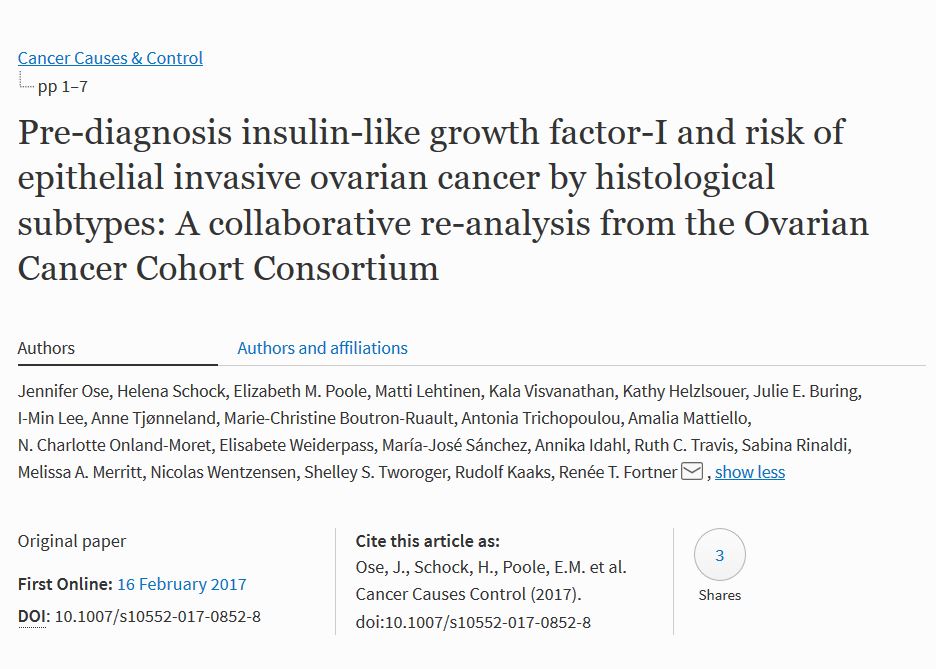
Purpose
Biologic evidence suggests that the Insulin-like growth factor (IGF)-family may be involved in the etiology of epithelial invasive ovarian cancer (EOC). However, prospective studies investigating the role of IGF-I in ovarian carcinogenesis have yielded conflicting results.
Methods
We pooled and harmonized data from 6 case–control studies nested within the Ovarian Cancer Cohort Consortium to investigate the association between pre-diagnosis IGF-I concentrations and subsequent risk of EOC. We evaluated IGF-I concentrations and risk of EOC overall and by tumor subtype (defined by histology, grade, stage) in 1,270 cases and 2,907 matched controls. Multivariable conditional logistic regression models were used to calculate odds ratios (OR) and 95% confidence intervals (CI).
Results
Doubling of IGF-I concentration was associated with significantly lower risk of overall EOC [ORlog2 = 0.82; CI 0.72–0.93]. We observed no heterogeneity by tumor characteristics (e.g., histology, phet = 0.62), menopausal status at blood collection (phet = 0.79), or age at diagnosis (phet = 0.60).
Conclusions
These results suggest that IGF-I concentrations are inversely associated with EOC risk, independent of histological phenotype. Future prospective research should consider potential mechanisms for this association, including, considering other members of the IGF-family to better characterize the role of IGF-signaling in the etiology of EOC.


